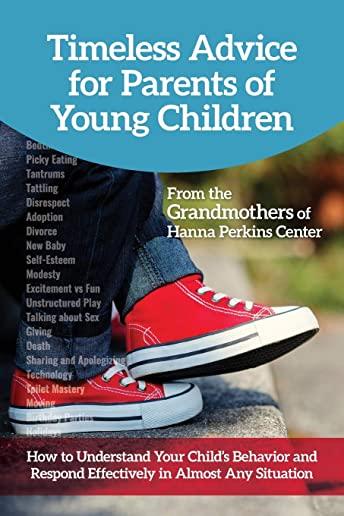
Grandmothers of Hanna Perkins Center, Th
product information
description
7Children don't come with an instruction manual, but this book is about as close as you can get. Written by a group of wise early-childhood development experts, it's an easy-to-read behavioral guide to what's going on in your young child's mind in almost any situation - from public tantrums to noticing people with disabilities to preparing for the first day of preschool. Whether you read it cover to cover or reach for it when the going gets tough, it will help bring out that loving, nurturing, patient and resourceful parent that lives in all of us.Parenting young children and parenting toddlers has become more difficult than ever. Moms and dads get parenting advice from every direction. From temper tantrums to picky eating to potty training to dealing with technology to developing self esteem, everybody seems to have their own idea about what's best when parenting young children.But early child development and toddler behavior aren't trends that change with the times. They're based on basic brain development. Being a toddler is a brief period of wonder and amazing growth, but it's not any easier for the child than it is for the parents. The best way to help young children through the everyday struggles of being 3 to 6 years old is to start by understanding what a young child can and can't do. It doesn't take an advanced degree in psychology or early childhood development to learn these things. This book begins with the premise that parenting is always difficult and often filled with best-guesses and unknowns. Its goal is to help parents to enjoy the hard job of raising young children, even when questions arise about a child's whining and complaining, acting sneaky, lying, tattling, not sharing, showing disrespect, developing sudden fears and phobias, frustration and other developmental hurdles.Chapters are organized by behaviors, including potty training, being mean, being too nice, bedtime struggles and sleeping problems, handling anger, not listening, and even liking dad more than mom. Each chapter provides an overview of what such behaviors mean at this developmental stage and how parents can work with the child in a gentle, loving way to understand their own emotions and respond to them in a way that's helpful and socially acceptable. The book also helps parents put some of the big things into perspective, such as where self esteem comes from and how to support its development. It discusses discipline and punishment, what young children overhear when you don't think they're listening, and how they sometimes scare themselves by filling in things they don't understand with magical thinking. It addresses why children seem to develop modesty overnight, how they learn to like giving as much as receiving, and even how to deal with questions about Santa Claus. It also contains ideas for helping children deal with things that are harder to talk about, like stranger danger, sexual predators, death of a loved one, illness of a parent and divorce. The authors don't tell parents what to. Rather, they offer validation, guidance and suggestions - all based on a better understanding of what's happening inside that fast-developing mind of your young child. They provide a long-term view of how parents have always struggled to raise happy, successful and well-adjusted children - and how many ways there are to do it well.
member goods
No member items were found under this heading.
Return Policy
All sales are final
Shipping
No special shipping considerations available.
Shipping fees determined at checkout.







